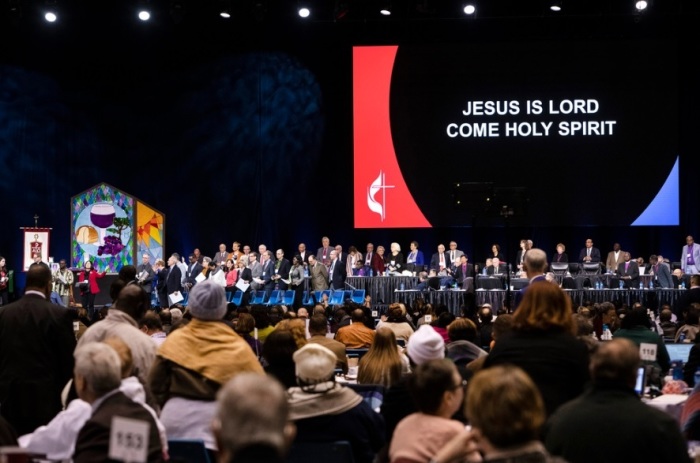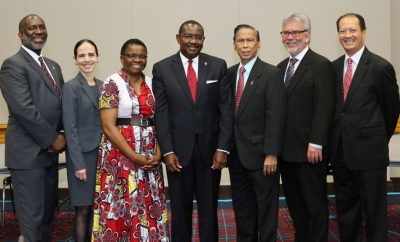Conservative United Methodists gearing up for church court battle over ‘Traditional Plan’

Theologically conservative members of the United Methodist Church are preparing to argue in front of the denomination’s highest court in defense of a plan approved last month to strengthen its stance against homosexuality and same-sex marriage.
The United Methodist Judicial Council is scheduled to meet April 23-26 in Evanston, Illinois, to hear challenges to “The Traditional Plan,” a measure approved at the UMC’s special session of General Conference last month.
The official April docket includes two items: the first being from Pastor Timothy Bruster of the Central Texas Annual Conference requesting that the Judicial Council review the “constitutionality, meaning, application, and effect of the adopted legislation referred to as the Traditional Plan.”
The second item came from the UMC Council of Bishops, who submitted a request on March 6 for the Judicial Council to determine the constitutionality of Petition 90066, which changes the denomination’s policy on congregation disaffiliation.
According to a statement released March 6, the Council of Bishops opposed the petition, which allows for an easier dismissal process for congregations, including allowing them to keep their property and financial assets.
The Rev. Thomas Lambrecht, vice president and general manager of Good News Magazine, told The Christian Post in an interview on Thursday that the Judicial Council will be considering the constitutionality of all parts of the Traditional Plan, with some parts having greater focus.
“They will determine which parts of the plan are consistent with the UM Church Constitution and can therefore be implemented as passed,” explained Lambrecht.

“They will also be ruling on the disaffiliation petition that set a process for local churches to use in leaving the denomination while keeping their property and assets. They will determine whether that disaffiliation process is consistent with the UMC Constitution and therefore be able to take effect.”
Lambrecht added that his organization was assisting some General Conference delegates with arguments and legal briefs, explaining that “only General Conference delegates have standing to present legal arguments on the Traditional Plan.”
Some opponents of the Traditional Plan have filed briefs arguing that the entire plan should be struck down. While noting that it was possible that the Judicial Council will agree, Lambrecht considered the likelihood of the Judicial Council doing so “fairly low.”
“Their operating principle is to try to save as much of any legislative package as possible. So it is more likely that the Judicial Council will only strike down those parts of the plan that do not pass constitutional muster,” said Lamrecht to CP.
Keith Boyette, president of the Wesleyan Covenant Association, told CP that he's “serving as an advocate for one of the General Conference delegates who has been designated as an interested party in the proceedings.”
“If the Judicial Council rules that a portion of the Traditional Plan is unconstitutional, such a ruling would not change the fact that the 2019 General Conference defeated the One Church Plan and reaffirmed the church’s teachings on marriage, ordination, and human sexuality,” said Boyette.
On Feb. 26, the UMC special session voted 438-384 in favor of adopting the Traditional Plan for resolving the denomination's internal debate over sexual ethics, which has threatened to bring schism to the denomination.
The Traditional Plan succeeded largely because delegates representing Africa and other overseas regional bodies within the UMC voted overwhelmingly in favor of it.
Conservatives within the denomination celebrated the vote result as an affirmation of sound Christian teaching while liberals within the denomination saw it as harmful to LGBT individuals.
Normally, the Judicial Council releases a decision within days of the conclusion of a meeting. If the church court upholds the Traditional Plan, it will take effect on new year’s day 2020 for congregations based in the United States and then 12 months after the 2020 General Conference for congregations based outside of the U.S.




























